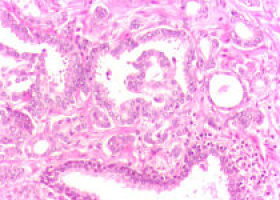
A randomised study finds that surgical removal of the lymph nodes surrounding a melanoma tumour after a positive lymph node biopsy (melanoma found in node) does not improve survival.
The study will likely change practice and conclude a long- standing debate about the role of this approach, called complete lymph node dissection (CLND).
More importantly, the new knowledge gained from this study will help spare thousands of patients with melanoma from unnecessary surgery and its significant side effects.
Patients who have cancer detected in the sentinel lymph node upon biopsy are deemed to be at increased risk of melanoma recurrence and metastasis.
Worldwide, it is recommended that such patients undergo CLND.
CLND is an extensive surgical procedure that involves removal of entire groups of lymph nodes.
It carries the risk of debilitating side effects, including infection, nerve damage and lymphedema.
According to the authors, lymphedema can occur in more than 20% of patients and persist long-term in 5-10% of patients.
“I think that our study is the beginning of the end of a general recommendation of complete lymph node dissection for patients with positive sentinel nodes,” said senior study author Claus Garbe, MD, a professor of dermatology at the University of Tübingen in Tübingen, Germany.
“However, it is possible that this surgery may provide a smaller survival advantage than this study could detect. So, doctors may want to discuss this finding with their patients to help them decide whether this procedure is right for them.”
Following surgery to remove the primary tumour, 483 patients with stage III melanoma and a positive lymph node biopsy were randomly assigned to observation only or CLND.
Patients in the observation group were closely monitored for signs of disease recurrence – they underwent a lymph node ultrasound exam every three months and CT/ MRI or PET scans every six months.
Patients in the CLND group followed the same schedule of check-ups after CLND.
Patients had a median follow-up of 35 months.
In the observation group, 14.6% of patients developed lymph node regional metastases (near the primary tumour), compared to 8.3% in the CLND group.
However, the differences in three and five-year recurrence-free survival, distant metastases-free survival, and melanoma-specific survival were not statistically significant between the two groups.
In this study, a survival difference of 10% or higher between the two treatment groups was considered statistically significant based on the study design.
Only patients with tiny, microscopic-size metastases (micrometastases) were included in this study.
According to the authors, CLND will continue to be recommended for patients with larger, clinically detectable metastases (macrometastases).
Another analysis of this study is planned in three years; however, Dr Garbe stated it is unlikely that the overall findings of the study will change, because prior research has shown that the majority (roughly 80%) of melanoma recurrences happen in the first three years of initial diagnosis.
Another ongoing CLND randomised trial, MSLT-II, is much larger and designed to detect an even smaller (5%) difference in survival.
However, the final results from MSLT-II are not expected until 2022.
Watch the video interview or press conference for more
Source: ASCO
We are an independent charity and are not backed by a large company or society. We raise every penny ourselves to improve the standards of cancer care through education. You can help us continue our work to address inequalities in cancer care by making a donation.
Any donation, however small, contributes directly towards the costs of creating and sharing free oncology education.
Together we can get better outcomes for patients by tackling global inequalities in access to the results of cancer research.
Thank you for your support.